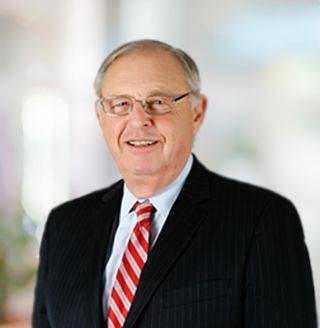
Michael Widland is now retired and is "Of Counsel" to the firm. During his many years as a Partner in Shipman's Stamford office, Mike developed an extensive practice working with not-for-profit entities and in the areas of corporate and commercial financing law, restructures, workouts and reorganizations. He represented major corporate clients, developers and lenders. Clients turned to Mike to draw upon his extensive experience and practical approach. His representation of lenders included commercial banks, savings institutions, asset-based lenders, insurance companies and leasing companies in secured and unsecured lending.
Immediately prior to his retirement, Mike focused his practice on working with non-profit entities and helped his clients by:
- Developing the concept of “functional replacement” to dramatically increase condemnation award by approximately $30M
- Reorganizing a not-for-profit within Chapter XI bankruptcy
- Refinancing mortgage and lines of credit for a performing arts center during the COVID-19 pandemic
Credentials
Education
- Boston University School of Law, LL.B., 1965
- American International College, B.A., 1962
Bar Admissions
- Massachusetts, 1965
- Connecticut, 1996
Distinctions
- AV Preeminent® Rated, Martindale-Hubbell
- Listed as a Connecticut Super Lawyer®: Business/Corporate (2010-2012)
- Listed in The Best Lawyers in America®: Banking Law (2008-2009)
Professional Affiliations
- American Bar Association
- Connecticut Bar Association
- Fairfield County Bar Association
- Hartford County Bar Association
- American Bankruptcy Institute
- Association for Transportation Law
- Association of Commercial Finance Attorneys
Community Involvement
- Maritime Aquarium at Norwalk: Secretary, Board of Trustees (1997-2020)
- Stamford Center for Arts: Chairman of the Board, Board of Directors (1991-present)
- Connecticut Legal Services: Trustee (1994-2005)
- Mill River Park Collaborative: Member, Board of Directors (2005-2020)
- Town of Weston Planning and Zoning Board (1993-2005)
